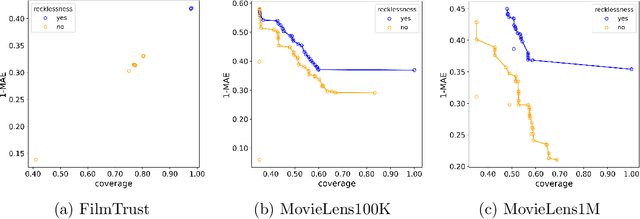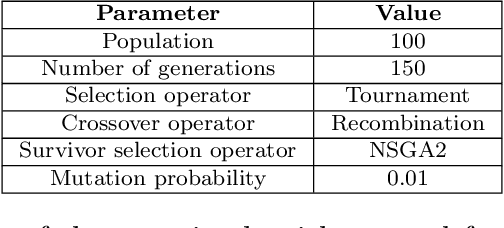Incorporating Recklessness to Collaborative Filtering based Recommender Systems
Paper and Code
Aug 03, 2023



Recommender systems that include some reliability measure of their predictions tend to be more conservative in forecasting, due to their constraint to preserve reliability. This leads to a significant drop in the coverage and novelty that these systems can provide. In this paper, we propose the inclusion of a new term in the learning process of matrix factorization-based recommender systems, called recklessness, which enables the control of the risk level desired when making decisions about the reliability of a prediction. Experimental results demonstrate that recklessness not only allows for risk regulation but also improves the quantity and quality of predictions provided by the recommender system.
* 15 pages, 4 figures, 2 tables
 Add to Chrome
Add to Chrome Add to Firefox
Add to Firefox Add to Edge
Add to Edge